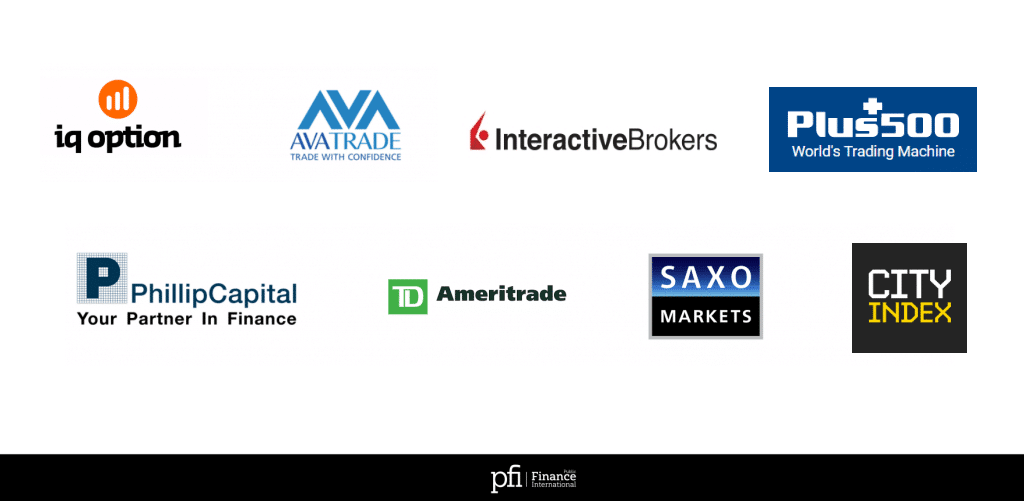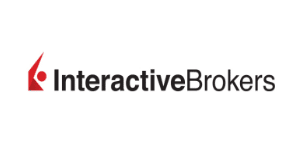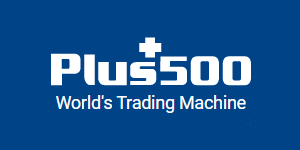Below, we go over the Best Online Broker in Singapore for 2023. Singaporeans looking for online trading platforms have a variety of options. Our analysis of Online Brokers in Singapore is based on various factors like account opening, ease of use, fees and commissions, regulation, market access, and more.
Let's get into our guide.
Table of Contents
- What are the Top Trading Platforms in Singapore 2023?
- 1. Interactive Brokers Singapore – Best Overall
- 2. AvaTrade
- Plus500
- Saxo Markets
- City Index
- TD Ameritrade
- Phillip Capital
- Best Trading App Singapore – AvaTrade
- Compare Trading Platforms in Singapore
- How to pick the best online investment platform in Singapore?
- What kind of financial instruments can you trade through brokerage accounts in Singapore?
- What are the types of Brokerage Accounts in Singapore?
- Types of orders
- What kind of fees will you be paying to trade different securities?
- Regulation of Online Trading in Singapore
- How to start trading in Singapore?
- Conclusion
What are the Top Trading Platforms in Singapore 2023?
Here are our top rated Stock Brokers in Singapore for 2023.
- Interactive Brokers – Best Overall – 4.9/5 – Visit Interactive Brokers >>
- AvaTrade – Best for Forex – 4.8/5 – Open Free Account
- Plus500 – Great for CFD Trading in Singapore – 4.7/5 – Open Account
- Saxo Markets – Best Premium Platform – 4.6/5
- City Index – Best for Experienced Traders – 4.5/5
- TD Ameritrade – Best for US Stocks – 4.4/5
- Phillip Capital – Best Local Singapore Trading Platform – 4.2/5
*CFDs are complex instruments and come with a high risk of losing money rapidly due to leverage. Between 74-89% of retail investor accounts lose money when trading CFDs. You should consider whether you understand how CFDs work and whether you can afford to take the high risk of losing your money.
Browsing through all the options is time-consuming. To help you with this process, we analyzed the top brokers in Singapore. We base our guide on a variety of standardized factors.
1. Interactive Brokers Singapore – Best Overall
Interactive Brokers (IBKR), founded in 1978, is a large discount broker. The US SEC and the Financial Conduct Authority (FCA) regulate it as a safe trading platform. Interactive Brokers is a NASDAQ-listed broker and offers extremely low brokerage fees.
On Interactive Brokers' Official Website
Interactive Brokers has offered trading Singapore Shares since they opened their Singapore office. There are two account types IBKR lite and IBKR Pro, both offering low fees and/or zero commissions. Interactive Brokers has excellent research, education, market offer, free trading tools and much more.
2. AvaTrade
AvaTrade is regulated by top-tier financial authorities. It is a safe broker with award-winning support and a variety of leveraged and non-leveraged trade instruments. It is best for FX trading and CFD day trading in Singapore.
71% of retail investor accounts lose money when trading CFDs with this provider.
Plus500
Plus500, founded in 2008, is a global CFD broker with great market access. The company is listed on the LSE (London Stock Exchange). Plus500 specializes in CFDs and is a one of the best in this category. Their platform is great for intermediate to advanced traders. They offer a good starting point for leveraged FX trading.
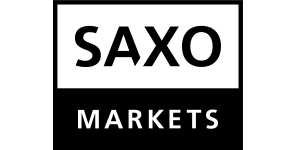
PFI Rating: 4.6/5
Saxo Markets
Saxo Capital Markets is an online brokerage firm. It is backed by a Danish investment bank called Saxo Bank, founded in 1992. Saxo Markets is popular among experienced investors. Their services are exclusive and expensive compared to other brokerage firms.
On Saxo Markets' Official Website
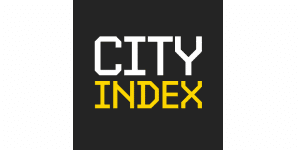
PFI Rating: 4.3/5
City Index
Backed by GAIN Capital, City Index is a safe broker. FCA and ESMA regulate City Index. They offer a great trading platform, research tools, backtesting, and a large product offering. They are part of the Financial Compensation Scheme (FSCS) and provide coverage up to £50,000 for the FCA-regulated entity. On the downside, they don't offer volume discounts and their fees could be better overall.
On City Index Official Website

PFI Rating: 4.7/5
TD Ameritrade
TD Ameritrade Singapore is a US-based trading platform that offers excellent market access for Singapore clients.
TD Ameritrade offers Stocks, Forex, ETFs, Funds, Bonds, Options, Futures, and cryptocurrencies.
US exchange-listed stocks, ETFs, and options trades have a US$0 commission.
On TD Ameritrade Official Website
The minimum deposit is $0 with no deposit or withdrawal fees. The downside is that they only offer Bank/Wire Transfer deposits.

PFI Rating: 4.5/5
Phillip Capital
Phillip Capital is a stock broker with over 45 years of positive track record in the financial industry. They operate in 15 different countries. The company has over 1 million customers around the world. Their custodian account exceeds $35 billion from investors, including high-net-worth individuals, hedge funds, companies, and family offices.
On Phillip Capital Official Website
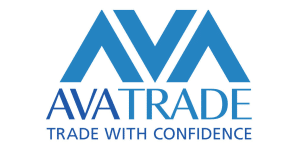
PFI Rating: 4.9/5
Best Trading App Singapore – AvaTrade
AvaTrade is the Best Trading App in Singapore. Their App is intuitive and easy to use and offers many investment options. The AvaTrade app is a great trading app in Singapore for CFDs on Forex, Crypto, Commodities, Indices, ETFs, and options.
On AvaTrade Official Website
Looking to trade crypto? Check out our review of the best cryptocurrency exchanges in Singapore.
Compare Trading Platforms in Singapore
Compare the trading Platforms in Singapore below to see how they compare to each other:
| Interactive Brokers | Plus500 | AvaTrade | Saxo Markets | City Index | TD Ameritrade | Phillip Capital |
|---|---|---|---|---|---|---|
| 1978 | 2008 | 2006 | 1992 | 1993 | 1975 | 1975 |
| SEC, CFTC, FCA, NFA | FCA, CySec, MAS, FSA, ASIC, FMA and FSCA | FCA, ASIC, FSCA, FRSA, Israel Securities Authority, Financial Services Agency, Financial Futures Association of Japan | Danish FS, FCA, MAS, FINMA, ACPR, AMF, Bank of Netherlands, FSMA, Securities & Futures Commission of Hong Kong, ASIC | FCA | SEC, CFTC | FINRA, CFTC, NFA, CME |
| Stocks, ETFs, Options, Futures, Currencies, Cryptocurrencies, US Spot Gold, Bonds, Mutual Funds, Hedge Funds | CFDs on: Shares, Forex, Commodities, Indices, Crypto, Options, ETFs | Forex, Stocks, Commodities, FXOptions, Cryptocurrencies, Indices, ETFs, Bonds | Stocks, Forex, CFDs, Commodities, Options, Forex Options, ETFs, Bonds, Mutual Funds, Futures | Forex, Shares, Indices, Commodities, Metals | Stocks, Forex, ETFs, Funds, Bond, Options, Futures, Cryptocurrency | Futures, Options, Commodities, Stock Index Futures |
| $0 | $100 | $100 | $2,000 | $100 | $0 | $5,000 |
| Yes | Yes | Yes | Yes | Yes | Yes | Yes |
| 1 Free Withdrawal per Month | $0 | $0 | $0 | $0 | $0 | $0 |
| No | Yes | $50/month After 3 Months | $25/month after 1 quarter of inactivity | $12/month after 1 year | $0 | $0 |
| Bank Wire, Credit Cards, ACH, Mail a check, Rollover, Online Bill Pay, Trustee-to-Trustee, SEP Contribution | PayPal, Skrill, Credit Card, Debit Card, Bank Transfer | Credit and Debit Cards, Wire Transfer, e-payments | Debit/Credit Cards, Bank/Wire Transfer, Stock Transfers | Debit/Credit Cards, Bank/Wire Transfer, PayPal | Bank/Wire Transfer | Bank/Wire Transfer, Account Transfers, ACH |
Trading Fees Compared
Below, we compared the Online Investment Brokerage Fees and Costs.
| Trading Fee | Interactive Brokers | Plus500 | AvaTrade | Saxo | City Index | TD Ameritrade |
|---|---|---|---|---|---|---|
| EURUSD | Spreads | Spread: 0.01% | Spread: 0.9 | 0.6 pips | 0.8 Points Average | 1.26 pips |
| GBPUSD | Spreads | Spread: 0.02% | Spread: 1.5 | 0.6 pips | 1.8 Points Average | 1.26 pips |
| Bitcoin | 0.12% - 0.18% of trade value | Spread: 0.30% | 0.13% | 1% | From 35 (spread) | N/A |
| Apple Fees | $0 commissions | Spread: 0.74% | 0.13% | 0.01 USD/Share (min. $1) - 0.02 USD/Share (min. $7) | 0.09% ($5 minimum) | $0.00 (U.S. Exchange) - $7.44 for OTC Stocks |
| Tesla Fees | $0 commissions | Spread: 0.75% | 0.13% | 0.01 USD/Share (min. $1) - 0.02 USD/Share (min. $7) | 0.09% ($5 minimum) | $0.00 (U.S. Exchange) - $7.44 for OTC Stocks |
| Amazon Fees | $0 commissions | Spread: 0.75% | 0.25 over market | 0.01 USD/Share (min. $1) - 0.02 USD/Share (min. $7) | 0.09% ($5 minimum) | $0.00 (U.S. Exchange) - $7.44 for OTC Stocks |
| S&P 500 Fees | N/A | Spread: 0.02% | N/A | Varied Spread | 0.6 Points | $6 (3 years) for $10,000 position |
| Options Fee | $0.25/contract - $0.65/contract | Spread | N/A | $ 1.10 - $6.00 (Contract Options) and $1.25 - $3.00 (Stock Options) | N/A | $0.65 per contract |
| Mutal Fund Fees | No Transction Fee Funds - 0.00 USD and Lesser of 3% or 14.95 for Transaciton Fees | N/A | 0.13% - 0.15% | $0 | N/A | $0.00 |
| ETF Fee | $0 commissions | Spread | 0.01 USD/Share (min. $1) - 0.02 USD/Share (min. $7) | N/A | $0.00 |
Honorable Mentions:
- DBS Vickers – This company is one of the largest financial groups in Asia, a subsidiary of DBS bank. DBS Vickers won multiple awards and offers access to local and international markets. They offer both securities and derivatives brokerage services for retail and institutional clients. DBS offers different accounts: cash accounts (online), cash upfront, young investor, CPF funds, and SRS funds. DBS Vickers has offices in New York, London, Shanghai, Hong Kong, Bangkok, Singapore, and Jakarta. DBS Vickers is good for trading Singapore stocks.
- Tiger Brokers – founded in 2014, Tiger Brokers is a brokerage firm regulated by MAS in Singapore.
Singapore is a major financial center in the Asian continent. This has attracted the interest of the world’s leading investment banks and brokerage houses.
Singapore has become one of the top economies by encouraging foreign investments through business-friendly policies.
Billions of dollars in fresh capital pour into the country every year. It is a major hub for multinationals looking to establish themselves in the Asian continent. The Singapore Stock Exchange (SGX) is the primary stock exchange in the country. The estimated market capitalization is $800 billion. This is moving a volume of 30 billion monthly shares valued at around $29 billion.
How to pick the best online investment platform in Singapore?
There are a few variables you should take into account before choosing an Online Brokerage in Singapore.
- Available markets and securities – your platform should allow you to trade the securities you plan to focus on. Certain platforms specialize in providing a wide range of CFDs, while others focus on stocks, bonds, or ETFs. You should know which markets and securities you will have access to before you sign up.
- Margin accounts – margin accounts are useful for leveraged trades, which means you will use a fraction of the asset value, the rest is borrowed. Each platform has its own rules and limits for leveraged transactions, and they often express how much leverage you can use through a ratio such as 33:1 or 10:1. This means that you can borrow $30 or $10 per each $1 you commit to that particular trade respectively.
- Customer support – even though the platforms on this list operate most of the time smoothly, if you ever find an issue while conducting the trades you want to count on the best customer service possible to solve the matter as quickly as you can.
- Costs – this is a major variable to watch out for before you sign up. Each brokerage firm in Singapore has its own trading fees depending on the securities you buy and sell. Even if you don't trade internationally, you should mind the SGX trading fees and clearing fees.
- Research tools – trading ideas don’t usually come out of nowhere. Having a brokerage constantly pushing valuable information in your direction helps you come up with new trade ideas every day. It is important to stay on top of market movements and adjust your strategy.
- Investor Education & training materials – nobody was born as a successful trader. Those who have achieved a certain degree of success investing in the financial markets constantly learn about economics, businesses, and trading. Your web platform should be able to help by offering educational and training materials to guide you in your investment journey to become a successful investor.
- Types of orders – traders understand the importance of having a set of different types of orders they can use to limit losses and strengthen their exit strategies. While limit and stop-loss orders are the most common, some firms allow you to place guaranteed stop-loss orders which are helpful.
- Security – your personal information and money are vital to you, and they should be protected. As part of your assessment, you should research to find out if they have ever dealt with data breaches or if accounts have mysteriously lost money due to unauthorized access by third parties. Some have insurance policies for clients' funds.
- Interface and ease of use – where you’ll spend most of your time as a trader is your computer screen. The user interface of your platform should be user-friendly. This will help you browse through charting tools, financials, and other relevant information without overwhelming you.
- Extra features – brokerage firms in Singapore have their way of serving their clients by introducing extra features that are valuable to investors, such as drawing tools, technical indicators, VIP services, and premium research materials, among other things.
What kind of financial instruments can you trade through brokerage accounts in Singapore?
The largest and most popular Online Brokerages in Singapore offer a wide range of financial assets and investment products:
- Stocks listed in the Singapore Stock Exchange (SGX) and other exchanges, including US stocks.
- Bonds, including corporate bonds, government bonds, and sovereign bonds.
- Preferred shares and other similar fixed-income instruments.
- Derivatives (futures, options, warrants).
- Contracts for Difference (CFDs).
- Exchange-traded funds (ETFs).
- Mutual funds.
- Foreign currencies.
- Cryptocurrencies.
Some offer asset management services like managed portfolios, wealth management solutions, and advisory services.
What are the types of Brokerage Accounts in Singapore?
The first part of a long-term investing journey is to open a CDP account as a Singapore permanent resident. The second part is to open a brokerage account.
You don't need a CDP account if you want to trade frequently or trade international stocks.
The SGX owns CDP Account. A CDP (Central Depository) account has integrated clearing, depository services and settlement in the Singapore Securities Market. To open a CDP account, you should be over 18 years old and have a Singapore bank account.
Brokerage Accounts are your gateway to online investing. You need a brokerage account to buy and sell investment products.
CDP-linked vs Custodian account
When choosing a brokerage account in Singapore, you will find that there are typically two account types: Custodian and CDP-linked accounts.
With a CDP-linked account, the stocks are bought in your name and credited to your CDP account. With a CDP-linked account, you become the owner of the shares and a company shareholder. This is applicable for trades on the SGX exchange.
Custodian accounts are nominee accounts managed by the broker. With custodian accounts, the owner of shares is the broker who holds the stocks in your name. For international stocks, you will need a custodian account.
Cash Upfront Trading Accounts
Some banks and stock market brokerages offer cash upfront trading (CUT) pre-funded accounts. These have lower fees.
CUT accounts require traders to pre-fund their accounts before they can purchase stocks. The amount deposited is the buying power you have on the markets. This cash upfront account has lower commissions on trades. If you are investing more, these are worth considering.
Types of orders
Brokers offer different order types on their platforms. Standard orders are market order, limit order and stop-loss order.
What kind of fees will you be paying to trade different securities?
Trading fees in Singapore vary from one firm to the other. Fees change depending on the securities you buy and sell.
Stock market trades, for example, tend to pay a flat fee per transaction.
Bond trades may be carried out with 0 fees, as the broker earns from the bid/ask spread.
Forex fees are expressed in a certain amount of “pips”. This is one unit of the smallest decimal place in the currency pair's value. Some brokers offer zero spread accounts which is the best option for active forex traders.
Fees vary depending on the type of trading account you open – ie. VIP vs. Standard or Classic accounts.
Some Online Brokers in Singapore charge an account maintenance fees. Most state the minimum commission fee per trade in their advertisements. The actual commission could vary depending on the size of the trade, the liquidity of the security, and some other technical variables.
There is a small fee of 0.0325% of the contract value for CDP accounts.
Regulation of Online Trading in Singapore
The Monetary Authority of Singapore (MAS) is the regulatory body overseeing active brokers in Singapore. They do this through regulations, licensing requirements, and other rules that promote transparency within the country’s financial markets.
The MAS may not register some. Some brokers in this list are registered with at least one tier-1 regulatory body, such as the Securities and Exchange Commission (SEC) of the United States or the Financial Conduct Authority (FCA) of the United Kingdom.
How to start trading in Singapore?
The first step to start trading in Singapore is to open an account with the firm.
Sometimes, these firms allow investors to open it without a minimum deposit. Some require a small deposit of S$100 or S$200 to start.
Most conduct an identity verification process. This is done by requesting legal documents that confirm your personal information. These usually include, a national ID card, passport, or utility bill.
Once this step is completed, you can start trading.
There were 715 securities listed in the SGX by the end of April 2020, including shares of companies in Singapore (463), China (84), and other parts of the world (168).
Conclusion
The following list should guide you in picking the best brokerage account in Singapore. There are many options available. Not every platform is suitable for your individual needs. You can sign up for a demo account before deciding on a cash account. You can test the platform, its features, the research tools available, and other interesting characteristics that could be valuable before you decide on who you go with.
You can visit the website of the Monetary Authority of Singapore (MAS) to get more information. You can rest assured that they are credible institutions. These brokers are regulated by either the MAS or other regulatory authorities in the world.
Our top picks for the best Investment Platform in Singapore are:
- Interactive Brokers. Wide range of financial products.
- Plus 500 – Great platform and fees for US and SGX stocks. Great for CFDs.
- AvaTrade comes in number three. Wide variety of products. Regulated by top-tier financial authorities.
- Saxo Capital Markets at number four. Impressive portfolio of CFDs. Trades can only be made through CFDs.
- City Index. Their platform is somewhat complex.
- TD Ameritrade. Fixed stock trading fees for US stocks and good customer support. Minimum deposit is $3,500.
- Phillip Capital. Great local online broker. Pre-paid account stocks are held in custodian accounts.
